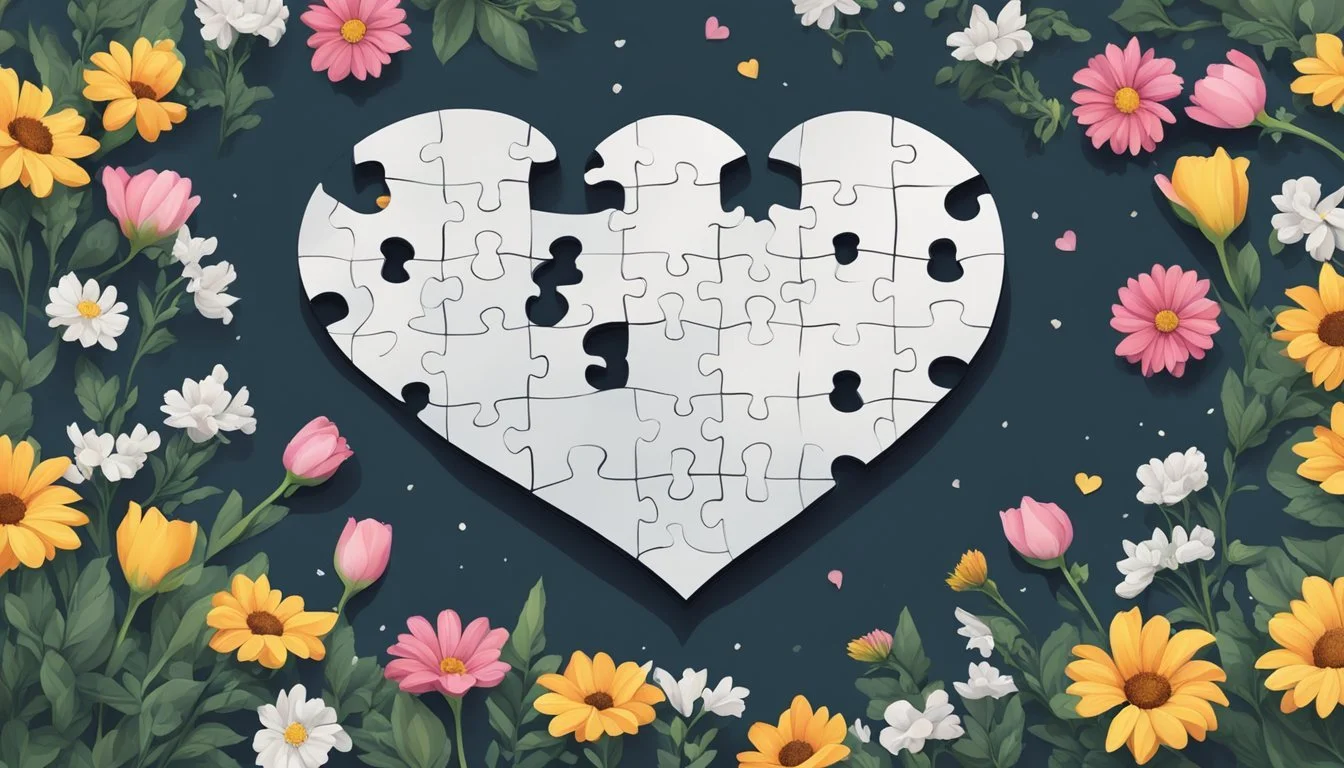Signs That You Are Not a Good Person
Key Indicators to Reflect On
Understanding what makes someone a good or bad person is crucial for personal growth and maintaining healthy relationships. Recognizing the signs that indicate you might not be a good person can be essential for introspection and improvement.
Being aware of these signs can help you correct your behavior and develop more meaningful connections with those around you. Reflecting on your actions and looking for areas to improve can lead to positive change, ultimately leading to a more fulfilling and harmonious life.
1) Consistently lying to others
Consistent lying is a hallmark of someone who is not considered a good person. Lying involves deliberately telling falsehoods or misleading others. It breaks down trust and damages relationships.
Frequent lying erodes trust. Whether it's about significant matters or trivial details, deceit creates a barrier between individuals. This behavior often leads people to question the liar's reliability and intentions.
Pathological liars may lie about minor events or drastically embellish stories. They might also display anxiety or defensiveness when confronted, as noted from the analysis on pathological liar signs.
The act of lying can be damaging beyond personal relationships. It can impact one's social, work, and legal standing as highlighted by Psych Central. For individuals caught in patterns of deceit, addressing the root causes of this behavior is essential.
Lying about events, either minor or major, without remorse can signal deeper issues. Such behavior may be indicative of underlying psychological conditions. It's important to distinguish between occasional lies and a persistent habit of lying.
2) Holding grudges and seeking revenge
Holding grudges can indicate an inability to let go of past hurts. A grudge is maintaining anger or resentment towards someone due to an actual or perceived wrong. This behavior can strain relationships and create a negative environment.
Seeking revenge is another sign that a person might not have the best intentions. It involves taking deliberate actions to cause harm or distress to someone in response to a perceived offense. Instead of fostering healthy resolutions, this behavior escalates conflicts.
People who hold grudges often find themselves trapped in a cycle of negativity. According to Psychology Today, these negative feelings affect the person holding the grudge more than the one who caused the offense.
A persistent need for revenge can be rooted in deeper personality issues. For example, a vindictive narcissist may hold grudges and seek revenge as a defense mechanism when feeling threatened or insecure. This behavior can be toxic and lead to ongoing misery for all parties involved.
Letting go of grudges and refraining from seeking revenge can improve personal well-being. Forgiving does not mean forgetting, but it involves releasing the hold that past offenses have on one's emotions. According to the Mayo Clinic, forgiveness can free a person from the control of someone who wronged them.
3) Displaying a Lack of Empathy
Lack of empathy is a key indicator of not being a good person. Empathy involves recognizing and understanding the feelings of others. When someone lacks this ability, it can severely affect their relationships and social interactions.
People who lack empathy may be overly critical of others. They often fail to listen properly and dismiss the emotions of others as unimportant. These actions can lead to hurt feelings and misunderstandings.
Such individuals also find it hard to respond appropriately to emotional situations. They might display indifference when someone close to them is facing a tough time. This can isolate them from others who seek emotional support.
Childhood experiences, personality disorders, and emotional trauma can contribute to low empathy levels. Recognizing these signs early can help in addressing and improving empathy through practice.
One can work on improving empathy by actively listening, asking open-ended questions, and exposing themselves to different perspectives and opinions. For more information, you can read about the lack of empathy signs.
4) Habitually breaking promises
Habitually breaking promises is a significant sign of someone not being a good person. This behavior erodes trust and damages relationships over time. Consistently failing to follow through on commitments indicates a lack of respect for others' time and feelings.
People who frequently break promises may do so for various reasons. Sometimes, they overcommit, making promises they cannot keep. This might stem from a desire to please others or a fear of disappointment, yet it results in unreliable behavior.
Another reason could be a disregard for the importance of their promises. When someone continually neglects their commitments, it shows they do not value the trust others place in them. This can be deeply hurtful for those who rely on their word.
Additionally, frequent promise-breakers might display other problematic behaviors, such as frequent lying. Lying can be a strong indicator of a person’s unreliability, as consistent dishonesty undermines trust in their promises and actions.
Understanding the motives behind this behavior is crucial. Helping these individuals realize the impact of their actions may encourage them to make and keep realistic promises. Recognizing this pattern early on is key to addressing it effectively in any relationship.
5) Gossiping and Spreading Rumors
Gossiping involves talking about people behind their backs. This behavior can damage reputations and trust. It's often done to entertain or feel included in social circles.
Spreading rumors can be even more harmful. Rumors are often unverified and can distort the truth. This leads to misunderstandings and conflicts among individuals or groups.
People who gossip may do so to feel superior or relieve their own insecurities. This reflects a lack of empathy and respect for others' privacy.
Gossip and rumor-spreading create toxic environments. They erode trust and encourage negative social dynamics. This behavior is generally seen as a sign of poor character.
If you find yourself frequently engaging in gossip or spreading rumors, it might be time to reassess your actions. Adopting more positive communication habits can lead to healthier relationships and environments.
6) Manipulating Others for Personal Gain
Manipulating others for personal gain demonstrates a clear disregard for their well-being and autonomy. This behavior often involves exploiting someone's emotions, vulnerabilities, or trust to achieve one's own objectives.
Common tactics include selective sharing of information to sway decisions. This can create a skewed perception of reality, making the manipulated person act in ways that benefit the manipulator.
Another sign is convincing people to give up important aspects of their lives. This could be relationships or activities, fostering dependency on the manipulator. The goal is to maintain control and ensure the manipulator's needs are prioritized.
Using guilt or blame without assuming responsibility is also prevalent. Manipulators may distort facts, making others feel responsible for problems they didn't cause, thus deflecting responsibility and control.
Recognizing these patterns can be challenging. If someone consistently prioritizes their needs at the expense of others, it's a strong indication of manipulative behavior. Awareness is the first step in addressing and preventing such harmful interactions.
For more insights on manipulative behaviors, check out Verywell Mind's article or Psychology Today's guide.
7) Taking pleasure in others' misfortunes
Experiencing a sense of satisfaction when others face challenges or setbacks can indicate a lack of empathy. This phenomenon, known as schadenfreude, occurs when individuals feel joy at the misfortunes of others.
One reason for this reaction is a perceived gain in personal status. When someone else fails, an individual may feel superior. This is particularly true if the other person's success was a source of envy.
Taking pleasure in others' misfortunes can also stem from unresolved personal insecurities. These insecurities can manifest as delight in seeing others face difficulties, as it temporarily masks one's shortcomings.
Illustrations of this behavior include feeling glee when a colleague makes a minor mistake or when a public figure faces a scandal. These reactions suggest an unhealthy emotional state.
Examining feelings and reactions to others' misfortunes can offer insight into one's character. Developing empathy and compassion can counteract these tendencies, leading to healthier interpersonal relationships.
Insights gathered from resources like Psychology Today and Live Science underline the importance of recognizing and addressing schadenfreude. A positive emotional outlook encourages growth and stronger social connections.
8) Failing to apologize or take responsibility
Failing to apologize or take responsibility is a clear sign of poor character. When someone does not own up to their mistakes, it suggests a lack of emotional maturity. This behavior can harm relationships and erode trust over time.
People who avoid responsibility may do so to protect their self-image. By refusing to admit fault, they attempt to avoid the discomfort of acknowledging their errors. This evasion can lead to a pattern of dishonesty and blame-shifting.
Some individuals might genuinely believe they haven't done anything wrong. This mindset prevents growth and self-improvement. Without acknowledging mistakes, there's little motivation to change or improve behavior.
In relationships, failing to apologize can cause significant harm. It signals a lack of respect and empathy towards others. This can create a toxic environment where issues remain unresolved and resentment builds up.
For those struggling with this issue, it's important to understand the value of taking responsibility. Accepting one's mistakes shows strength and a willingness to learn. It fosters trust and respect in both personal and professional relationships.
For more insights on why failing to take responsibility is harmful, visit Why People Refuse to Take Responsibility and How to Cope.
9) Being excessively critical or judgmental
An excessively critical or judgmental attitude can be a clear indicator of underlying issues. Individuals who consistently criticize others often exhibit unrealistic expectations. They may express disappointment when these expectations are not met, which can lead to strained relationships.
Criticism may stem from a defensive position. People who feel insecure about themselves may lash out to protect their fragile ego. This isn't necessarily because of anger or betrayal but due to a fear of being misunderstood or exposed.
This behavior often involves a mental component. Conditions like anxiety or paranoia can influence one's tendency to be overly critical. Anxiety may cause someone to find fault in almost everything, increasing the frequency of criticism.
Mindfulness practices can help mitigate these tendencies. Techniques like grounding exercises can help those with a habit of judgmentalism see beyond their narrow viewpoint and focus on the present reality. This approach can reduce the constant stream of negative judgments.
Such individuals also tend to complain frequently. This habit can seep into their conversations, affecting their interactions with friends and family. Constant complaining often makes social interactions less enjoyable for everyone involved.
For more information, you may find relevant insights here and here.
10) Neglecting relationships and obligations
Ignoring the needs and feelings of loved ones can be a major sign. When someone frequently neglects to provide emotional support, it indicates a lack of care. This behavior can lead to feelings of isolation for the other person.
People may also fail to fulfill promises and responsibilities. This can involve forgetting important events, not offering help when needed, or avoiding responsibilities altogether. Such actions demonstrate a disregard for the importance of the other person's needs.
A person who neglects their relationships might also avoid communicating effectively. This includes not listening attentively or failing to address conflicts. Poor communication can create misunderstandings and resentment, further harming the relationship.
In addition, dismissing another person's emotional experiences can be indicative of neglect. Whether it's not acknowledging their achievements, or failing to comfort them during tough times, this behavior shows a lack of empathy.
Consistently prioritizing one's own needs over those of others can also be a clear warning sign. It can manifest in selfish decision-making, which disregards the impact on those around them. This choice to put oneself first can erode trust and intimacy.
These patterns of behavior can strain relationships, causing emotional distance and even leading to the dissolution of the bond. For a deeper understanding of emotional neglect and its impact on relationships, resources such as A Conscious Rethink and Psychology Today can provide valuable insights.
Understanding Self-Awareness
Self-awareness is the ability to recognize and understand one's own emotions, behaviors, and motivations. It's crucial for personal growth and improving relationships.
The Role of Self-Reflection
Self-reflection involves taking a deliberate pause to evaluate your thoughts, actions, and feelings. This practice can help individuals identify areas where they may need improvement.
For instance, keeping a journal can be a effective method for regular introspection. Through writing, people can gain insights into their emotional responses and behaviors in various situations.
Additionally, setting aside time for meditation or quiet contemplation can foster a deeper self-understanding. These practices promote mindfulness, enabling individuals to become more aware of their internal states and how these affect their interactions with others.
Recognizing Negative Patterns
Recognizing negative patterns in one's behavior is a key component of self-awareness. These patterns might include defensiveness, controlling behavior, or a tendency to create drama.
People who lack self-awareness often fail to notice how their actions impact others. For example, they might be unaware of their defensiveness in conversations, which can lead to strained relationships.
To identify these patterns, feedback from trusted friends or colleagues can be invaluable. Actively listening to how others perceive your behavior can provide insights that are difficult to see on your own.
Recognizing and addressing these negative behaviors is the first step towards positive change and improving self-awareness.
Continue working on these aspects to foster a more aware and empathetic approach to life. Being in tune with one's own emotions and actions can lead to better interpersonal relationships and a more fulfilling life.
Impact on Relationships
A person's negative traits can severely affect their personal and professional relationships. Understanding these impacts can offer insight into why relationships might be strained or unfulfilling.
Behavior Towards Friends and Family
Negative behavior towards friends and family members often includes a lack of empathy, frequent criticism, and manipulation. A person may dismiss the feelings or needs of those around them, making others feel undervalued or unsupported.
Such behavior can lead to feelings of resentment and distance within the relationship. Friends and family might reduce communication or avoid interactions altogether.
Additionally, dishonesty and unreliability can further deteriorate these bonds, leading to a loss of trust. Over time, these relationships may become strained, untrustworthy, and emotionally exhausting for everyone involved. Fostering positive interpersonal dynamics requires effort and sincerity, which are often absent in such negative interactions.
Effects on Professional Interactions
In professional settings, detrimental behaviors such as taking undue credit, belittling colleagues, and poor communication can stifle teamwork and productivity. This can create a hostile work environment, where collaboration and trust are in short supply.
A person exhibiting these behaviors may find that their colleagues are reluctant to cooperate or share information. This can hinder project success and overall team morale.
Moreover, persistent negativity and a lack of respect for others can result in professional isolation. Colleagues and supervisors may perceive the individual as difficult to work with, limiting career advancement opportunities and fostering a toxic work atmosphere. Establishing professional respect and open communication is vital for productive and healthy professional relationships.








